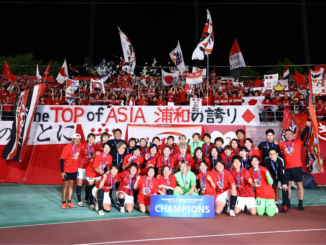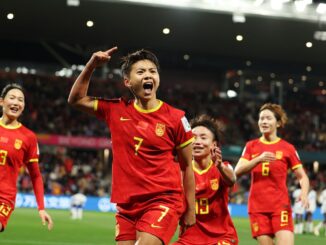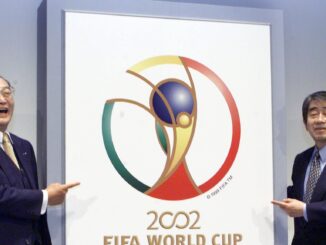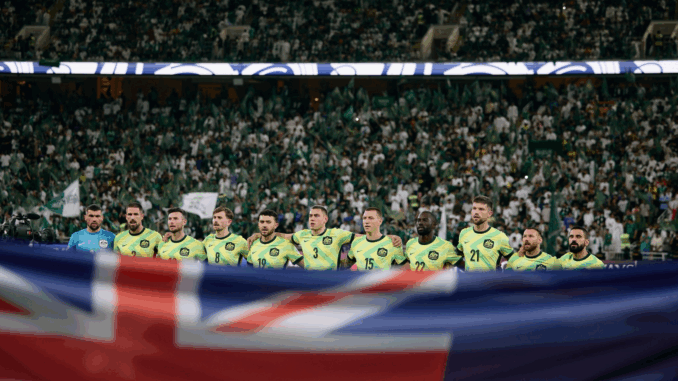
History is written by the victors, and so when Australians look back on this qualifying campaign, they’ll do so looking through green and gold tinted glasses.
And with good reason; Australia has qualified automatically for the FIFA World Cup for the first time since 2014, avoiding the treacherous and nerve-wracking path of the playoffs required for both 2018 and 2022.
All this from a side that looked completely lost at sea after the opening round of matches which saw them lose at home to Bahrain and only manage a dour 0-0 draw with Indonesia in Jakarta.
It saw Graham Arnold step down, replaced within days by Tony Popovic, becoming the first member of the famed 2006 ‘golden generation’ to take control of the side, and he faced an uphill battle to get this team back on track.
Since Australia joined the AFC in 2006, only one side has failed to win either of their first two games in the decisive round of qualifying and proceeded to qualify automatically at the end of it. Ironically enough, that was Australia in qualifying for 2014, when they drew 0-0 with Oman and 1-1 with Japan to begin their campaign.
In fact, they went winless in their opening three games of that campaign before storming home to claim qualification on the final night against Iraq thanks to the heroics of Josh Kennedy.
The fact it has only happened once in two decades speaks to how rare and difficult an achievement it is, even more so when you add in a change of coach as well.
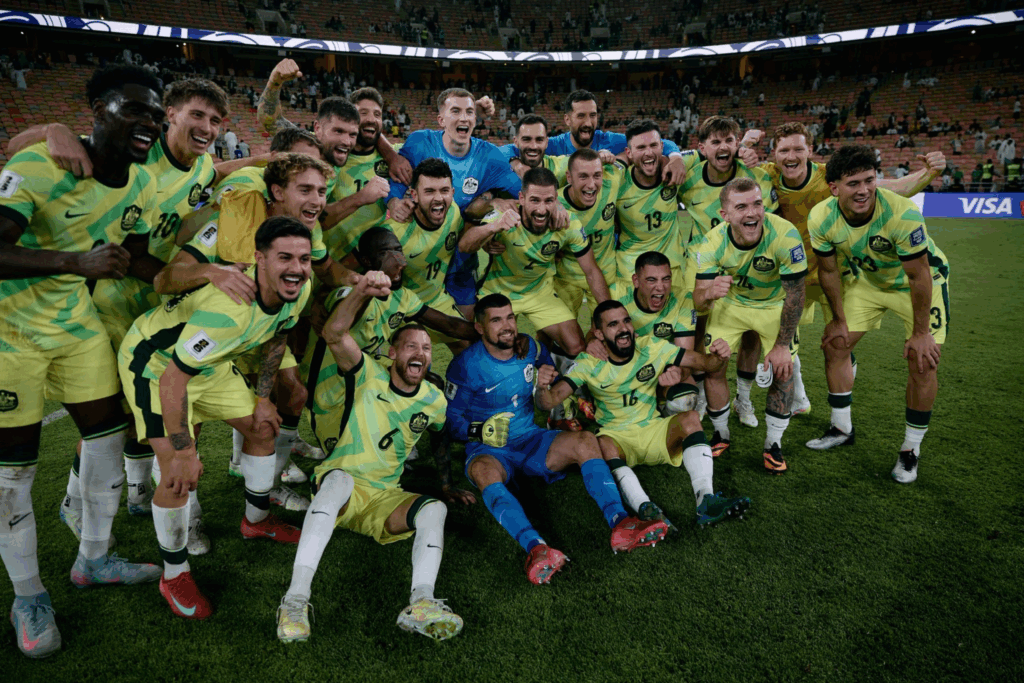
But from his very first press conference, Popovic has exuded an air of confidence and calmness, which has rubbed off on his players.
“We should always have an expectation of winning,” he said in his introductory press conference last September.
“We should aim for the first spot, we should try and go for first and see how we go, because we know that the qualifying is difficult. Past history tells us that, the last two times we had to go through a playoff to get there… but right now our focus is getting that automatic spot and while we can do that, that’s what we have to aim for.”
Every window seemed to bring with it an added layer of pressure, but as the pressure ratcheted up, the more the players responded.
It hasn’t always been pretty and it hasn’t always been smooth sailing. There were great escapes in November against both Saudi Arabia and Bahrain that, in hindsight, salvaged the campaign.
In Melbourne, Saudi Arabia thought they had scored a last minute winner only to have VAR rule it out for a marginal offside call. A few days later in Bahrain, Australia were 2-1 down deep into stoppage time when Kusini Yengi struck late to gift Australia a share of the points.
Australia could easily have found themselves deep in the mire at the end of 2024, but instead remained in second place with destiny somehow still in their own hands as the calendar turned over into 2025.
Since then, the performance against Japan not withstanding, they have been close to flawless, rounding out the campaign with four straight victories. They hammered Indonesia at home 5-1, cruised to victory in China, snatched a last-minute victory against Japan and then professionally finished the job in Saudi Arabia.
In true Popovic style, it was done with little fuss or fanfare. Qualifying for World Cups has become commonplace in Australia now, this being their sixth consecutive appearance on the global stage, but one should never underestimate the challenge to get there.

The depth in Asia is quickly growing. The advent of a 48 team World Cup has offered otherwise second-tier nations an incentive to invest, and invest they have. Uzbekistan and Jordan have both sealed qualification for the first time, while nations like Saudi Arabia, Iraq, UAE and Qatar, that Australia have struggled against in the past, all now face the uncertainty of the playoffs.
Popovic’s side certainly isn’t going to win any stylistic awards; they are more brutally efficient than they are tiki taka, and that perhaps why they sometimes fly under the radar, but at home and abroad. They aren’t universally admired for their artistic beauty, like Japan. Or revered for their household names, like they were two decades ago.
But football is a game of contrasts and about playing to your strengths.
Under Popovic, whether that’s at club or international level, that has always been about defensive solidity and being hard to break down, and that is certainly true of this iteration of the Socceroos.
Since Popovic assumed control, Australia has conceded just six goals in eight games, while banging in 16 at the other end.
“We’re happy with the win and the automatic qualification,” Popovic said after the game in Jeddah.
“We had a goal before the match, which was to win. I’m proud of the players and the coaching staff. I’m happy and optimistic about what’s to come.
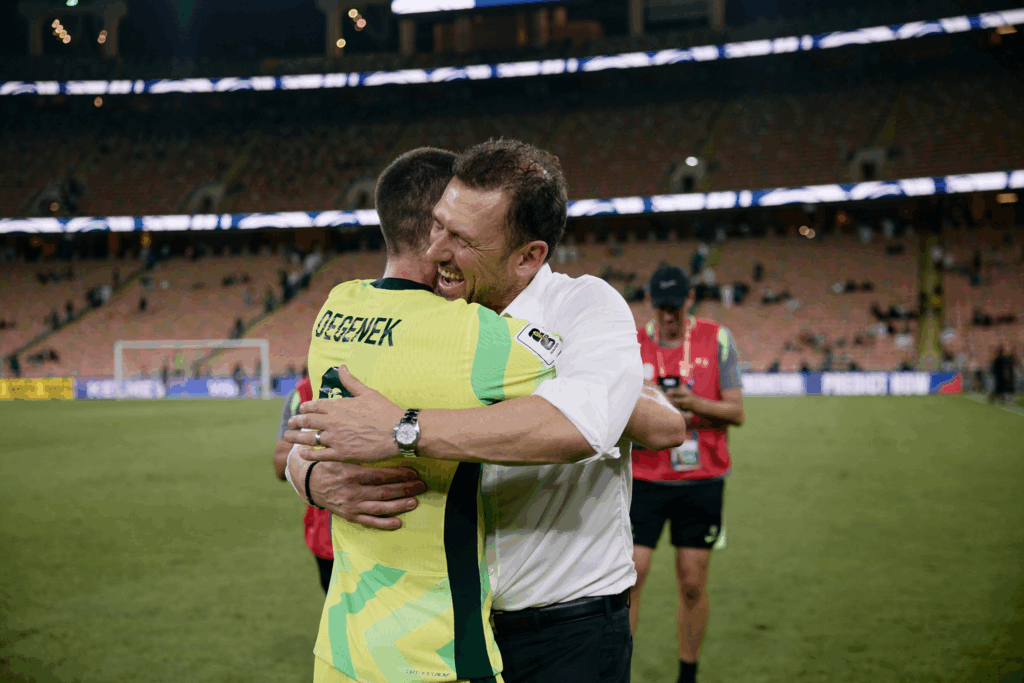
“It’ll sink in as the days go by. It’s been a very intense period since I’ve joined, and I’ve loved it so far. We’ve done the first part – qualifying automatically – and now the next part is to be bigger and better for the World Cup. So, enjoy a few days, and I’m proud of all the staff and players.”
He continued: “We didn’t expect this path. We were playing well and coped with the difficult circumstances. That’s been a characteristic from the first day I arrived.
“We went 1-0 down against China and came back to do it here in this atmosphere. You’ve got to deal with the weather as well. It’s not easy to show that character, resilience and then quality to come back, take the lead and win the game.
“I’m delighted. We’ve built a good foundation now. We want to really get better, kick on and try and do something special at the World Cup.”
They are now set for their sixth straight World Cup appearance, joining only Japan and Korea Republic as the only sides in Asia to have managed such a streak.
For a nation that went 32 years between appearances on the world stage, that is something that should never be taken for granted.
Photos: X/Socceroos


